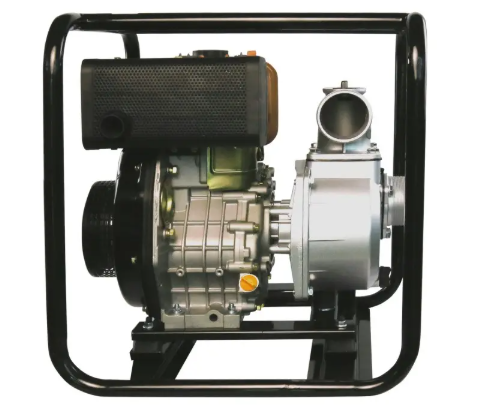Have you ever faced production interruptions, data loss, or paralyzed customer service during a power outage? For many business owners and equipment managers, power reliability is not just about convenience—it is the lifeline of business continuity. Off-the-shelf generator sets often fail to meet specific business needs, resulting in inefficiency or wasted resources. This article provides a clear roadmap to help you select the most suitable customized generator set for your business needs, ensuring you stay proactive in the face of power crises.
Table of Contents
Why Off-the-Shelf Generator Sets May Not Suit Your Business?
Assessing Your Business Needs: Key Considerations
Core Customization Options for Customized Generator Sets
How to Choose a Reliable Customized Generator Set Supplier?
Installation and Ongoing Maintenance: Ensuring Long-Term Reliability
Conclusion and Next Steps
Why Off-the-Shelf Generator Sets May Not Suit Your Business?
Off-the-shelf generator sets offer plug-and-play convenience, but this "one-size-fits-all" approach often fails to meet the unique needs of businesses. Each business has different power requirements, space constraints, and operating environments. Generic solutions may lead to insufficient capacity, inefficiency, or unnecessary overspending.
The core advantage of customized generator sets lies in their precise alignment with your specific business needs. By opting for customized generator sets, you not only get the exact power output you need but also optimize fuel efficiency, reduce operating costs, and ensure seamless integration with existing infrastructure. This tailored approach is particularly suitable for businesses with special requirements, such as medical facilities, data centers, manufacturing plants, and remote telecommunications sites.
Assessing Your Business Needs: Key Considerations
1. Determine Your Power Requirements
Start by accurately calculating your total power needs. List the power consumption of all critical equipment, machinery, and systems, distinguishing between essential and non-essential loads. Consider surge currents during startup, which often require higher capacity than running power. A professional energy audit can help you obtain accurate figures and avoid underestimating or overestimating your needs.
2. Analyze Your Operating Environment
The installation location of the generator significantly impacts equipment selection. Indoor installations require ventilation and exhaust systems, while outdoor installations need weather protection. Extreme temperatures, high humidity, or altitude can affect generator performance, and these factors must be considered during the design phase.
3. Evaluate Runtime and Backup Needs
How long does your business need continuous power support? Is it for short-term power outages or as a primary or continuous power source? The answer will determine the required fuel type, tank size, and engine durability. For mission-critical applications, such as hospitals or data centers, parallel systems or redundant configurations may be necessary for maximum reliability.
4. Review Regulations and Compliance Requirements
Different regions have specific emission standards, noise restrictions, and safety regulations. Ensure your customized generator set complies with all local regulations to avoid costly fines or retrofitting expenses. An experienced customized generator sets supplier can provide valuable guidance in meeting these requirements.
Core Customization Options for Customized Generator Sets
• Power Output and Voltage Configuration
Customize the power output and voltage configuration according to your equipment needs. Different regions and equipment may have different voltage requirements (e.g., 110V, 220V, 480V), and your generator must match these specifications.
• Fuel Type Selection
Diesel, natural gas, propane, or dual-fuel options each have their pros and cons. Diesel is generally more efficient and suitable for high-power needs, while natural gas is cleaner and more accessible. Your choice should be based on fuel availability, cost, and environmental considerations.
• Control Systems and Automation
Modern generators offer advanced control options, from basic manual start to fully automatic transfer switches (ATS), which detect power loss and automatically activate backup power within seconds. For unmanned facilities or critical applications, remote monitoring capabilities are essential.
• Enclosure and Acoustic Treatment
Depending on the installation location, you may need weatherproof enclosures, rainproof covers, or silent enclosures to meet noise restrictions. Customizing the exterior color to match corporate branding or environmental aesthetics is also a common practice.
Insert infographic here: Customized Generator Set Decision Flowchart, ALT text: customized-generator-sets-selection-decision-flowchart
How to Choose a Reliable Customized Generator Set Supplier?
Choosing the right partner is as important as choosing the right equipment. An excellent customized generator sets supplier not only provides products but also offers expertise, technical support, and service reliability.
1. Evaluate Experience and Expertise
Look for suppliers with a proven track record in your industry. Ask for case studies and references from similar projects to ensure they understand the specific challenges and requirements of your industry.
2. Check Certifications and Quality Standards
Recognized certifications such as ISO 9001, ISO 14001, and industry-specific certifications indicate that the supplier adheres to international quality standards. These certifications ensure product consistency and reliability.
3. Review Manufacturing and Customization Capabilities
An on-site or virtual tour of the manufacturing facility can provide insights into their capabilities. A reputable supplier should have an in-house engineering team, modern production equipment, and strict quality control processes.
4. Inquire About Inventory and Delivery Timelines
For businesses with urgent projects, finding a supplier that offers customized generator sets in stock or shortened delivery times may be critical. Clearly understand the complete timeline from design to installation.
5. Assess After-Sales Support and Service
Generators are long-term investments, and ongoing support is essential. Inquire about maintenance contracts, technician availability, response times, and spare parts availability. A reliable supplier should offer comprehensive after-sales support plans.
Installation and Ongoing Maintenance: Ensuring Long-Term Reliability
Professional installation and regular maintenance are crucial for the performance and lifespan of a generator. Even the best equipment will underperform or fail if improperly installed or neglected.
Develop a preventive maintenance plan that includes regular inspections, oil and filter changes, load testing, and cooling system maintenance. Many suppliers offer maintenance agreements, giving you peace of mind and ensuring your equipment is ready to perform when needed.
Consider remote monitoring options, allowing suppliers to proactively monitor your generator’s status and detect potential issues before they lead to failures. This proactive approach can significantly reduce downtime and extend equipment life.
Conclusion and Next Steps
Choosing the right customized generator set for your business is a strategic decision that requires careful consideration. By thoroughly assessing your needs, understanding the available customization options, and selecting a reputable supplier, you can secure a reliable power solution that perfectly matches your business requirements.
Remember, the best customized generator set not only looks good on a spec sheet but also integrates seamlessly into your operations, providing years of reliable service and protecting your business from power outages when it matters most.
Ready to find the perfect power solution for your business? Our expert team has decades of experience helping businesses of all sizes design, customize, and implement perfect power generation systems. [Contact us today for a free consultation and customized generator set quotation]. Let us help you ensure your business never goes dark due to a power outage.
Table of Contents
- Table of Contents
- Why Off-the-Shelf Generator Sets May Not Suit Your Business?
- Assessing Your Business Needs: Key Considerations
- Core Customization Options for Customized Generator Sets
- How to Choose a Reliable Customized Generator Set Supplier?
- Installation and Ongoing Maintenance: Ensuring Long-Term Reliability
- Conclusion and Next Steps

